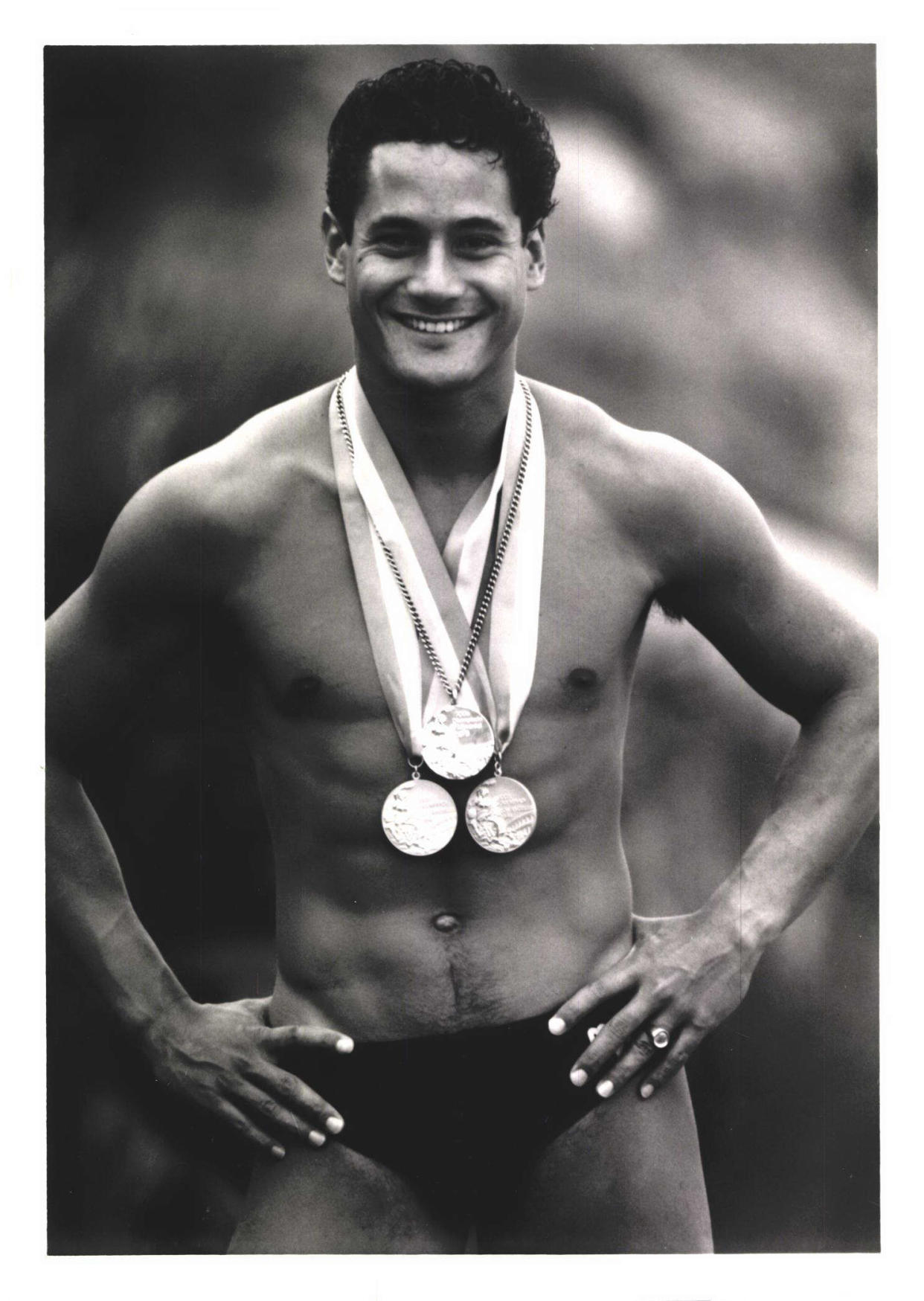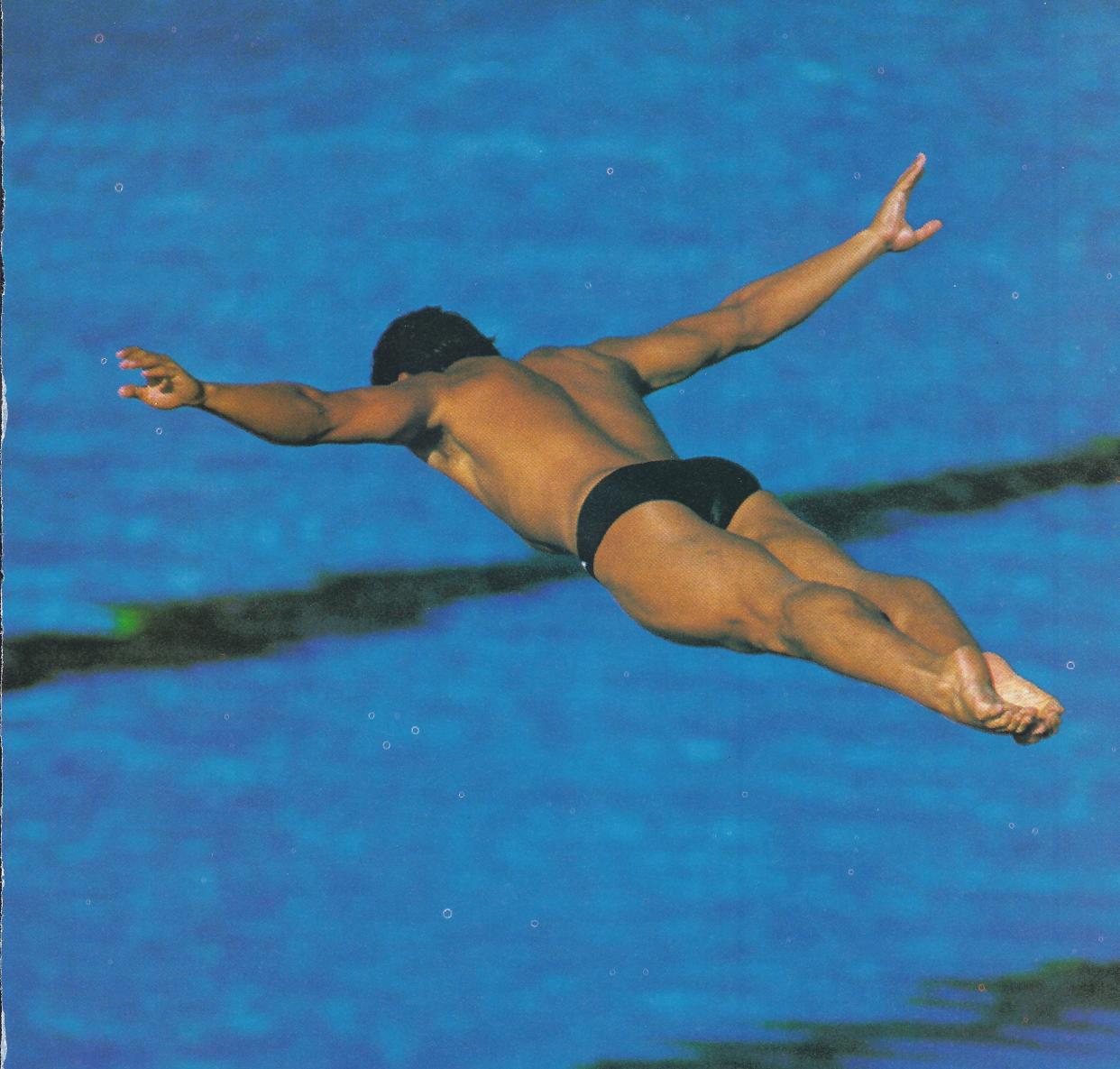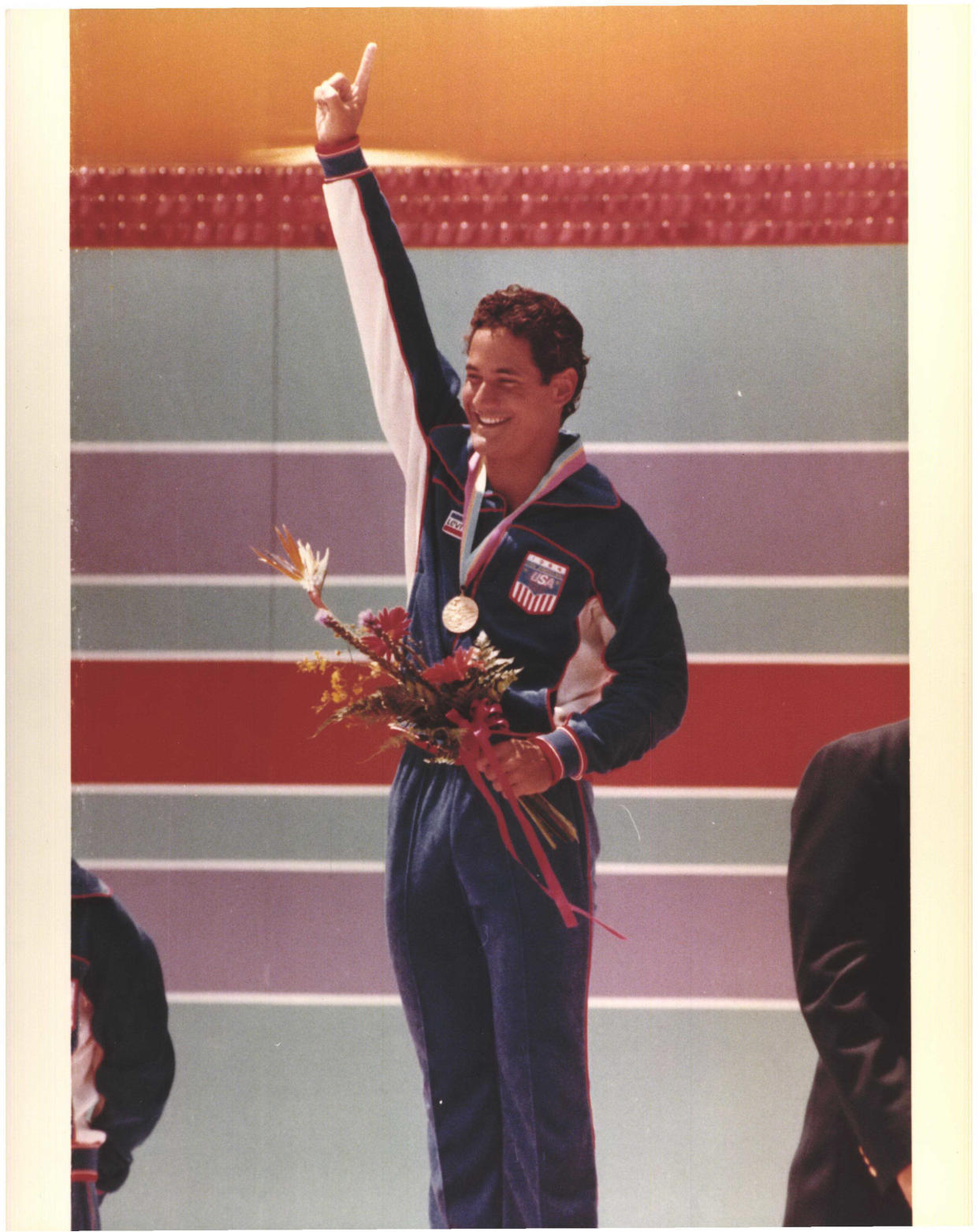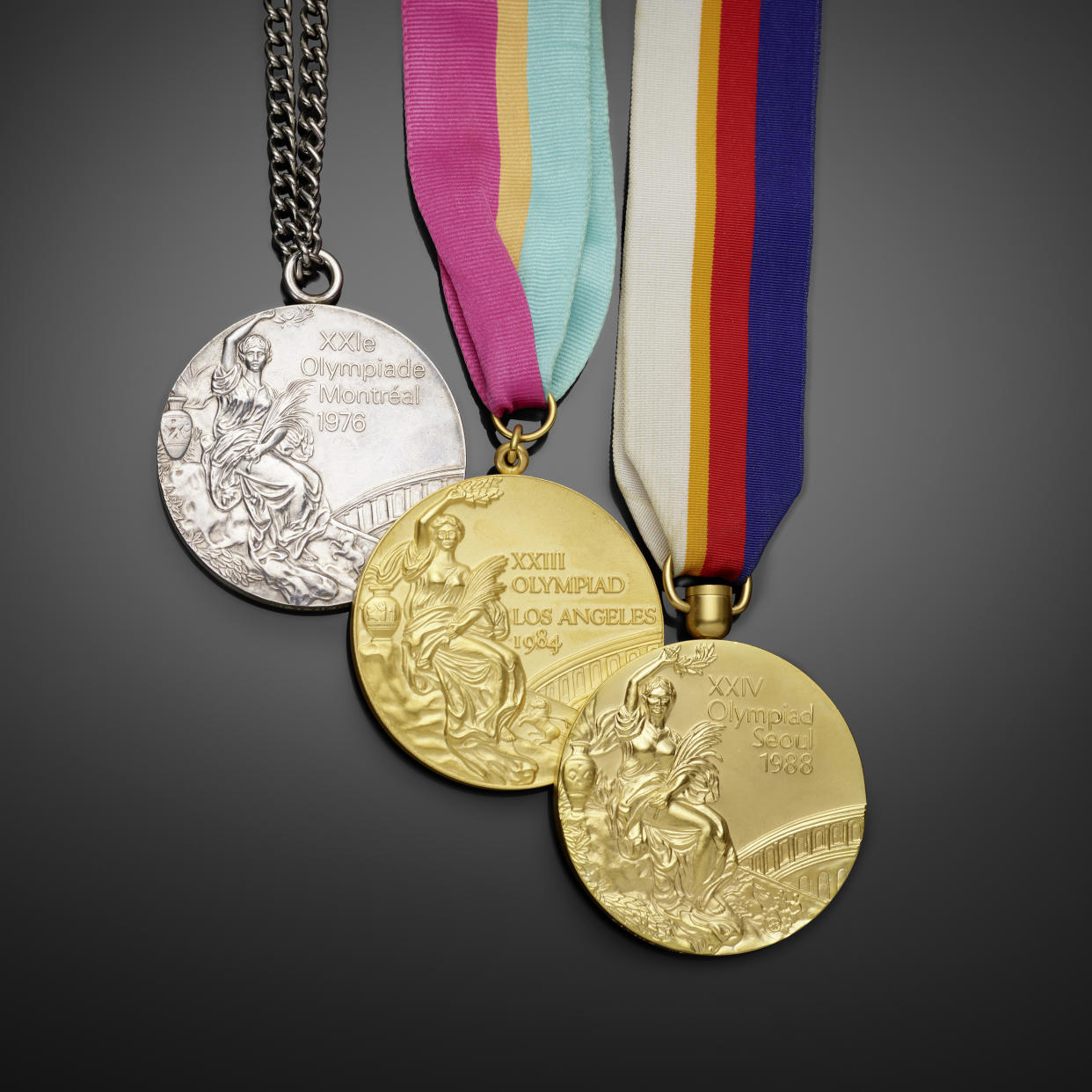Olympian plans to auction gold medals in support of LGBTQ+ causes
LOS ANGELES — Greg Louganis, a five-time medal winning Olympian and LGBTQ+ activist, plans to auction off three of his medals to support HIV/AIDS and LGBTQ+ organizations.
Considered one of the greatest divers of all time, Greg is raising money for HIV/AIDS and LGBTQ+ organizations and will be selling his Olympic Medals at Bonhams' auction house in Los Angeles. His goal is to support these organizations while sharing the stories of adversity that he faced competing in the Olympics in the 1980s with an HIV+ status.
“Each medal has a story, and to be able to share that story, [a story that] can live on beyond me, it can do some good. But also, 10% of the proceeds are going to the Damien Center, which is an HIV/AIDS service organization. They provide services for the HIV/AIDS community, whether it be housing, medical, dental, mental health, they have a food bank, they're bursting at the seams,” Louganis told Yahoo News.

The three medals are his 1988 Gold (estimated to be worth around $800,000 to 1.2 million), 1984 Gold (estimate: $600,000 to 900,000), and 1976 Silver (estimate: $200,000 to 300,000). They will go on tour in Los Angeles, New York and London before going up for sale on Sept. 14.
The event will happen at the Marguerite Aquatics Complex — formerly the Mission Viejo Swim Club — where Louganis first started training as a child.
Louganis made history as the only male athlete to win back-to-back gold medals in both springboard and platform events at the Olympics.
David Wallechinsky, an Olympic historian, watched Louganis live at the games in 1984 and '88, as an analyst for NBC Westwood One radio, he said.
“He set the world records in the platform that still exists for a number of points. He was just wonderful, so talented and graceful at the same time,” Wallechinsky told Yahoo News.

Finding out he had contracted HIV
Early in Louganis’s training for the 1988 Olympics, he got an ear infection and felt that something wasn’t right. He decided to take an HIV test just to be sure, and received the news that he was positive.
“Now, my thought at that time … I was training in Florida, and so I was gonna pack up my bags, move back to California, lock myself in my house and wait to die. That's what I thought. But my doctor, who's also my cousin, said, ‘The healthiest thing for you to do is just continue training, you trained so hard to get here. We don't know how long you've been positive, and we'll just treat you very aggressively.’”
He decided to put his care into the hands of his doctor and his training into the hands of his coach. “Because going back home, it's the unknown,” he said. “I'd be in my head. I probably wouldn't — wouldn't be here.”

Louganis was “out” to friends, family and people within USA Diving, he said, but he kept his life private from the media and from the public during his career. In his 1995 New York Times bestselling book, “Breaking the Surface,” he opened up about his sexual identity, an abusive relationship and his HIV status. He went on a book tour with his co-author, Eric Marcus.
“It was so emotional, because thousands of people were coming out, just to meet me and get pictures, sign autographs. … People would say, ‘You saved my life.’”
'We’re all human beings'
The Human Rights Campaign (HRC), the country's largest gay rights organization, issued a striking declaration on Tuesday regarding the recent wave of anti-LGBTQ+ laws passed in the U.S.
The organization says conservative lawmakers have enacted laws banning drag performances, gender-affirming care, LGBTQ-inclusive education, inclusive bathrooms and laws affecting transgender athletes' ability to play sports on teams that match their gender identity.
More than 75 anti-LGTBQ bills have been signed into law across the U.S. as of June 8 — more than any year on record, the HRC says.
Louganis said the legislation only serves to further divide people.
“It's so silly. … You can't shut the door. That's so ridiculous. To embrace people, look for the similarities. Don't be always looking for the differences in there, because ultimately, we're not any different than anyone else. We're all human beings.”
The story behind the medals
Louganis said now feels like the right time to put some of his medals up for auction, “to give those stories to other people that they can carry through and share with more people.”
One of the medals is his 1976 Silver for the Men’s 10-Meter Platform. At just 16 years old, Louganis made the Olympic team and made it up to the podium at his first game. He wasn’t happy about it.
“There was so much shame surrounding that, because I went there to win. I didn't go there to take second,” he said.

He finally won a gold in the 1984 Olympics for the Men’s 3-meter springboard, another medal that he’s auctioning off in September. But on the podium, once again, his mind was elsewhere.
“The goal was two gold medals. So I got the first one, and it's like, ‘OK, what's what's next?’ But then, when I won the Olympic gold medal in platform [diving], I just lost it. It really touched me emotionally.”
He broke the 700-point mark for the first time in Olympic history, according to his press team.
He would go on to win two more golds at the Seoul, South Korea, Olympics in 1988, for the 3-meter Springboard and Men’s 10-meter platform, the third medal he’s auctioning off.
“I was competing with [Ni Xiong]. He was from China. He was 14 years old, and it came down to the last dive. He was leading going into the last dive, and I just pulled it out. So that was my very last competitive dive,” Louganis said.

In 2028, the Olympics will return to Los Angeles, back on Louganis’s own turf again.
“The Olympics. 2028. Yeah, really looking forward to that,” he said.
